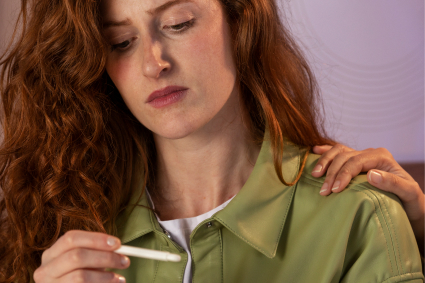Addiction to substances is not something that happens all of a sudden. It is a complex condition. It involves your genes and your surroundings. Put simply, your genes can make you more prone to substance abuse and addiction. However, what you experience in your environment is also important. This includes things like your family life, social circles, and the stress you face. To find better ways to help you, we need to answer the question: What is the role of environmental factors in addiction? This will help us make treatment at our NJ rehab center more successful and enable us to support you in a more meaningful way during your recovery.
Skip to:
Addiction treatment in New Jersey
In 2022, lots of people in New Jersey reached out for help with substance use, and the numbers give us a clue into what’s going on. Alcohol was the main reason for 29,295 people deciding to get help. Then, there were 5,508 people who sought help because of marijuana. Heroin was the primary drug for 30,413 people looking for support. About 58% of those seeking help, which is 49,715 people, were white. And a big majority, 69% or 58,841 people, were men.

A lot of the time, the reason so many people find themselves needing help with substances isn’t just about the substance itself. It’s about what’s happening around them—where they live, who they hang out with, and their family history. These environmental factors can really push someone towards using alcohol, marijuana, heroin, or any other substance. It is like the world around them nudges them into it without an easy way out, which is why we need to understand genetic and environmental factors in addiction.
What is the role of environmental factors in addiction, and what are they?
When we talk about environmental factors in addiction, we’re looking at everything around you that isn’t part of your genes. The environment around you influences whether you might start using substances and potentially develop an addiction. Environmental factors include:
- Social factors
- Economic factors
- Physical factors

Social factors
The influence of family members, their behaviors, and attitudes towards substance use can significantly affect your likelihood of using substances. For example, growing up in a home where substance use is common may normalize the behavior.
Friends and social circles can have a powerful impact, too, especially if substance use is prevalent within these groups. Peer pressure can encourage substance use as a means of fitting in. Also, the broader societal attitude towards substance use, including media portrayal and legal status, can influence your behavior and perception of risk. In environments where drug use is normalized, or there is peer pressure to use substances like fentanyl, you are more likely to start and continue using these drugs.
Get Help. Get Better. Get Your Life Back.
Searching for Accredited Drug & Alcohol Rehab Centers Near You? Or Mental Health Support?
Even if you have failed previously, relapsed, or are in a difficult crisis, we stand ready to support you. Our trusted behavioral health specialists will not give up on you. Call us when you feel ready or want someone to speak to about therapy alternatives to change your life. Even if we cannot assist you, we will lead you wherever you can get support. There is no obligation. Call our hotline today.
FREE Addiction Hotline – Call 24/7Social factors hugely impact why people drink alcohol. In many places, having a drink is pretty much the norm at parties, weddings, or even just hanging out with friends. It can feel like if you’re not holding a glass, you’re out of place. This pressure is especially strong among young people, who often drink to fit in. Plus, movies and TV shows make drinking look like the ultimate way to have fun or shake off stress, which influences how you think about alcohol. Be aware that drinking leads to many problems, such as addiction to alcohol and insomnia problems, among others.
Economic factors
Economic factors are significant environmental factors in addiction. When you are facing economic hardships and living paycheck to paycheck, life’s stress doesn’t take a break. Without cash to spare, fun activities or getting some help can seem out of reach. So, it’s no surprise that some folks might lean on substances as a makeshift stress reliever. And it’s not just about struggling to pay the bills. Being jobless can leave you feeling stuck and stressed, nudging you toward substances for a bit of an escape. Even if you’ve got work but it’s stressful or just plain unsatisfying, reaching for a drink or something else to ease the dissatisfaction becomes tempting.
Fentanyl, a very strong painkiller, is way cheaper than many other drugs. This makes it a go-to for people struggling with money. When jobs are scarce or pay poorly, and life feels like a constant financial battle, the stress can be overwhelming. Fentanyl offers a temporary escape from that reality, but it’s very risky because of how potent it is. You should be aware of signs of fentanyl overdose, such as severely depressed breathing, pinpoint pupils, or loss of conscience, as it might be fatal. Essentially, the tough economic times drive people toward cheaper options, and fentanyl, despite its dangers, becomes a choice for some trying to cope with life’s pressures on a tight budget.

Physical factors
If it’s easy to get your hands on alcohol or drugs, there’s a much higher chance you might start using them and maybe even get hooked. When these substances are just around the corner, saying no becomes a lot harder, and before you know it, trying it “just once” can turn into a lot more.
Also, think about where you live, as it is another example of environmental factors in addiction. If it’s crowded, there aren’t any chill spots to hang out safely, or there’s always some kind of trouble or violence nearby, you might find yourself wanting to escape that stress. For some, that escape comes in the form of drinking or using drugs. When your surroundings aren’t giving you peace, substances might seem like an easy out to get away from it all, even if it’s just for a little while.
For instance, if getting opiates is easy and if they’re readily available in your community or prescribed too freely, there’s a bigger chance you might start using them and potentially get addicted. This easy access lowers the hurdle for trying them out and can lead to regular use pretty quickly. Also, your living situation plays a big role. When you’re surrounded by chaos or feeling trapped, taking pills might seem like a quick fix to numb the pain or escape reality. However, it will feel good only for a short while. Using this substance leads to dependency, which makes opiate detox necessary.

Interaction between genetic and environmental factors in addiction
Addiction is not solely caused by your environment or just written in your DNA; it’s often the result of how these two interact. Your genetics make you more likely to develop an addiction, but whether or not you can depend a lot on environmental factors in addiction. Addiction can run in families, which shows a genetic component. Studies suggest that genetics account for about half of the risk for addiction. This means if your parents or siblings have struggled with addiction, you might have a higher risk due to your genes.
Along with stress and trauma, environmental factors in addiction can lead to polysubstance use. However, environmental factors can either turn up or dial down these genetic risks. For example, if someone with a genetic risk for addiction grows up in a supportive environment, with strong family bonds and access to positive activities, these factors can reduce the likelihood of developing an addiction. On the other hand, if that same person experiences chronic stress, peer pressure to use substances, or lives in an area where drugs are easily accessible, their genetic risk could be increased.

Get Your Life Back
Find Hope & Recovery. Get Safe Comfortable Detox, Addiction Rehab & Mental Health Dual Diagnosis High-Quality Care at the We Level Up Treatment Centers Network.
Hotline (877) 378-4154What can you do about environmental factors in addiction?
When you’re fighting addiction, it’s not just about kicking a habit. It’s also about dealing with the world around you that might be nudging you toward that habit. Here’s how you can manage environmental factors in addiction and make changes that help:
- Figure out what triggers you. Look around and notice what in your environment makes you want to use—could be certain places, people, or stressors. Knowing what triggers you is like having a map in a minefield; it helps you navigate more safely.
- Find support. Hang out with people who get what you’re going through and are rooting for you to win this battle. Whether it’s support groups or clubs focused on healthy living, being part of a community can give you a big emotional boost.
- Make your space a safe zone. Turn where you live into a place that helps you stay clean. This might mean getting rid of any substances at home or moving to a new spot if the old one has too many bad vibes. Aim for a chill, happy vibe at home where you can relax without temptations.
- Take up new activities. Keep busy with stuff you love or new hobbies that keep your mind off using. It’s a great way to meet new friends, fill your time with joy, and discover new passions that don’t involve substances.
- Stand up for what you need. If you can, try to make some noise for changes in your community that make it easier for everyone to recover, like better access to mental health services or cleaner living spaces. Making a difference can feel pretty awesome.
- Learn to relax. Mastering the art of staying calm through mindfulness or meditation can help you face pressure without reaching for a substance. These tools can keep you grounded and focused on making choices that are good for you.
- Seek professional help. Talking to a therapist or counselor can be a game-changer. They can teach you new ways to deal with triggers without falling back into old habits and help you make your environment a better place for your recovery.

The role of rehabilitation centers
Rehab centers are your personal guide through recovery. They show you how to spot and manage the environmental factors in addiction and avoid fatal consequences, such as overdose deaths. Rehab centers offer a safe space where you can step away from the pressures and temptations of your usual surroundings. They connect you with people who really understand what you’re going through and support you every step of the way.
Plus, they teach you new skills and hobbies that fill your time with positive activities instead of substance use. Drug and alcohol rehab centers in New Jersey also help you learn how to relax and deal with stress in healthy ways so you’re less likely to turn to substances when things get tough. Essentially, they give you the tools and support you need to change your environment and lifestyle in ways that support your recovery and help you build a healthier, happier life.
Also, rehab centers provide you with education about harmful drugs. They answer questions such as: What are the risks of substance abuse? What is the most addictive drug? What can you do to overcome addiction By sharing this kind of information, rehab centers make sure you know exactly what you are dealing with. It’s all about making smart choices and staying safe.

Our holistic approach at We Level Up
Addiction does not solely reside in the physical craving for substances; it is deeply rooted in psychological distress, emotional pain, and social disconnection and other environmental factors in addiction. Therefore, besides providing drug detox in New Jersey, our treatment programs are designed to address the complex nature of addiction. We ensure that both the mind and body are nurtured back to health.
Life’s major events, along with the stresses of daily routines, can significantly impact mental well-being, which, in turn, affects physical health. Chronic stress is a common trigger for substance use, as people may turn to drugs or alcohol as a coping mechanism. In our holistic treatment approach, we prioritize stress management as a key component of recovery. By teaching stress reduction techniques and healthier coping strategies, we aim to mitigate one of the primary drivers of addiction.
Comfortable Facilities & Amenities
High-Quality Addiction & Mental Health Rehabilitation Treatment
Rehab Centers TourRenowned Addiction Centers. Serene Private Facilities. Inpatient rehab programs vary.
Addiction Helpline (877) 378-4154Proven recovery success experience, backed by a Team w/ History of:
15+
Years of Unified Experience
100s
5-Star Reviews Across Our Centers
10K
Recovery Success Stories Across Our Network
- Low Patient to Therapist Ratio
- Onsite Medical Detox Center
- Comprehensive Dual-Diagnosis Treatment
- Complimentary Family & Alumni Programs
- Coaching, Recovery & Personal Development Events
Our programs incorporate a variety of therapies and activities designed to strengthen the mind-body connection, including:
- Mindfulness and meditation: These practices foster a state of present-moment awareness, reducing stress and enhancing emotional regulation. By becoming more attuned to their thoughts and feelings, individuals can break the cycle of automatic negative reactions that contribute to substance use.
- Yoga and physical exercise: Physical activity is not only beneficial for the body but also for the mind. Yoga, in particular, combines physical poses with breathwork and meditation, promoting mental clarity and stress relief. Regular exercise can improve mood, reduce anxiety, and decrease cravings for substances.
- Nutritional counseling: The link between nutrition and mental health is an integral part of the mind-body connection. A balanced diet can support brain health, reduce inflammation, and improve mood, contributing to overall well-being and resilience against addiction.
- Art and music therapy: Engaging in creative activities like art and music therapy provides an outlet for expression and emotion, serving as therapeutic tools for healing. These therapies can enhance self-awareness, reduce stress, and offer new perspectives on personal recovery journeys.

Seek professional help and take control of your life
The world around us—our friends, where we live, and even our jobs can push us toward using substances. Answering the question “What is the role of environmental factors in addiction?” is step one to turning things around. The next step is seeking help from professionals. They will help you quit and figure out and deal with everything in your life that’s been nudging you toward addiction. They’ve got your back with support, advice, and a plan to make your whole life better, not just free from substances. They will help you build a future where you stay healthy and happy for good.
Sources:
New Jersey Drug and Alcohol Use Treatment Substance Use Overview 2022 Statewide. (2023). https://www.nj.gov/humanservices/dmhas/publications/statistical/Substance%20Abuse%20Overview/2022/Statewide.pdf
Experience Transformative Recovery at the We Level Up Treatment Center.
See our authentic success stories. Get inspired. Get the help you deserve.



Start a New Life
Begin with a free call to an addiction & behavioral health treatment advisor. Learn more about our dual-diagnosis programs. The We Level Up treatment center network delivers various recovery programs at each treatment facility. Call to learn more.
- Personalized Care
- Caring Accountable Staff
- Comfortable Amenities
- Licensed & Accredited
- Renowned w/ 5-Star Reviews





